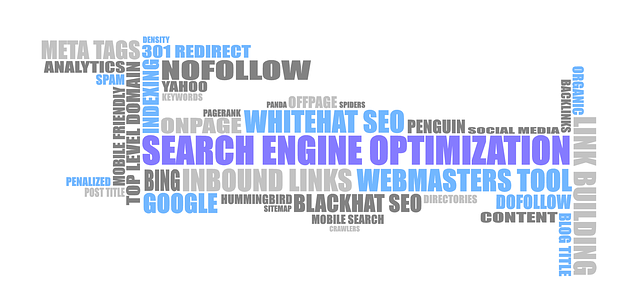In today's digital era, AI-powered search is revolutionizing information retrieval by efficiently navigating complex data landscapes and understanding user intent. These tools, leveraging advanced algorithms and machine learning, enhance productivity, decision-making, and innovation. By offering context-aware results, continuous improvement, and granular analysis, AI-driven search becomes a strategic asset for organizations aiming to maximize their data potential. Success is measured through improved user experience metrics like click-through rates (CTRs), session duration, and bounce rates, ultimately boosting engagement and conversion rates.
In today’s digital landscape, effective search intelligence is paramount for businesses aiming to stay competitive. The need for AI-powered search solutions has never been more pressing, as users demand instant, relevant results. This article delves into the critical aspects of advanced search intelligence, exploring its key features and benefits, strategic implementation guidelines, and metrics for evaluating success in adopting AI-driven search technologies. By understanding these elements, organizations can enhance user experiences and gain a competitive edge.
- Understanding the Need for AI-Powered Search Solutions
- Key Features and Benefits of Advanced Search Intelligence
- Implementation Strategies: Integrating AI into Your Search System
- Measuring Success: Evaluating the Impact of AI-Driven Search Performance
Understanding the Need for AI-Powered Search Solutions

In today’s digital era, the sheer volume of information available is staggering. Businesses and individuals alike are deluged with data from various sources—websites, documents, research papers, social media, and more. Traditional search methods often fall short in this landscape, leading to frustrating experiences and missed opportunities. This is where AI-powered search solutions step in as game changers. By leveraging advanced algorithms and machine learning capabilities, these tools can navigate complex data architectures, understand user intent, and deliver relevant results almost instantaneously.
The need for AI-powered search arises from the desire to enhance productivity, improve decision-making processes, and foster innovation. With AI at the helm, search functionality becomes smarter, more intuitive, and contextually aware. It can analyze patterns in data, learn from user interactions, and continuously refine its results, ensuring that each query is met with accurate and up-to-date information. This level of sophistication enables users to focus on what matters most—exploiting insights hidden within vast repositories of knowledge.
Key Features and Benefits of Advanced Search Intelligence

In today’s digital era, an AI-powered search intelligence solution is a game-changer for businesses aiming to stay ahead of the curve. These advanced systems offer a multitude of key features that transform traditional search into a strategic tool. One of the most significant benefits is its ability to understand natural language queries, enabling users to find information with simple, conversational searches, much like asking a knowledgeable colleague. This enhances productivity by saving time and effort compared to sifting through complex results pages.
Moreover, these solutions can analyse vast amounts of data from diverse sources, uncovering hidden patterns and insights that were previously inaccessible. They deliver relevant, context-aware results, ensuring users find exactly what they need. With machine learning at its core, the system continuously learns and adapts to user preferences, improving search accuracy over time. This dynamic approach revolutionises information retrieval, fostering a more efficient and effective decision-making process for organisations leveraging their data assets.
Implementation Strategies: Integrating AI into Your Search System

Implementing an AI-powered search solution is a strategic move for any organization aiming to enhance its information retrieval capabilities. The first step involves assessing your existing search system and identifying areas where AI can make a significant impact. This may include improving relevance ranking, understanding user intent, or providing personalized results. By integrating AI algorithms, such as natural language processing (NLP) and machine learning, into your search architecture, you enable the system to learn from user interactions and adapt over time.
To ensure a smooth transition, it’s crucial to have a well-defined plan. Start by pilot testing with a small subset of users or within specific departments, gathering feedback and refining the AI model accordingly. Gradually expand the implementation, monitoring performance metrics such as query satisfaction rates and user engagement. Regular updates and fine-tuning will optimize the ai-powered search experience, making it a valuable asset for knowledge discovery and information management.
Measuring Success: Evaluating the Impact of AI-Driven Search Performance

Measuring success in a search intelligence solution heavily relies on evaluating the impact of AI-driven search performance. By leveraging machine learning algorithms, these solutions can enhance search accuracy and relevance, ultimately improving user experience. The key metrics to assess include click-through rates (CTRs), average session duration, and bounce rates. Higher CTRs, longer sessions, and lower bounce rates indicate that users are finding relevant results faster, leading to increased engagement and conversion rates.
AI-powered search also enables more granular analysis through user behaviour tracking. This includes understanding query patterns, popular search terms, and user navigation paths. Such insights empower businesses to refine content strategies, optimize search index structures, and personalize search results, further amplifying the solution’s impact and value.
In today’s digital landscape, an AI-powered search solution is no longer a luxury but a necessity. By understanding the need for such solutions, leveraging their key features and benefits, and implementing them strategically, businesses can enhance user experiences, improve operational efficiency, and ultimately drive better outcomes. Measuring the success of these initiatives involves evaluating performance metrics that reflect improved search accuracy, speed, and relevance. Embrace the power of AI-driven search to stay competitive in a rapidly evolving digital world.
